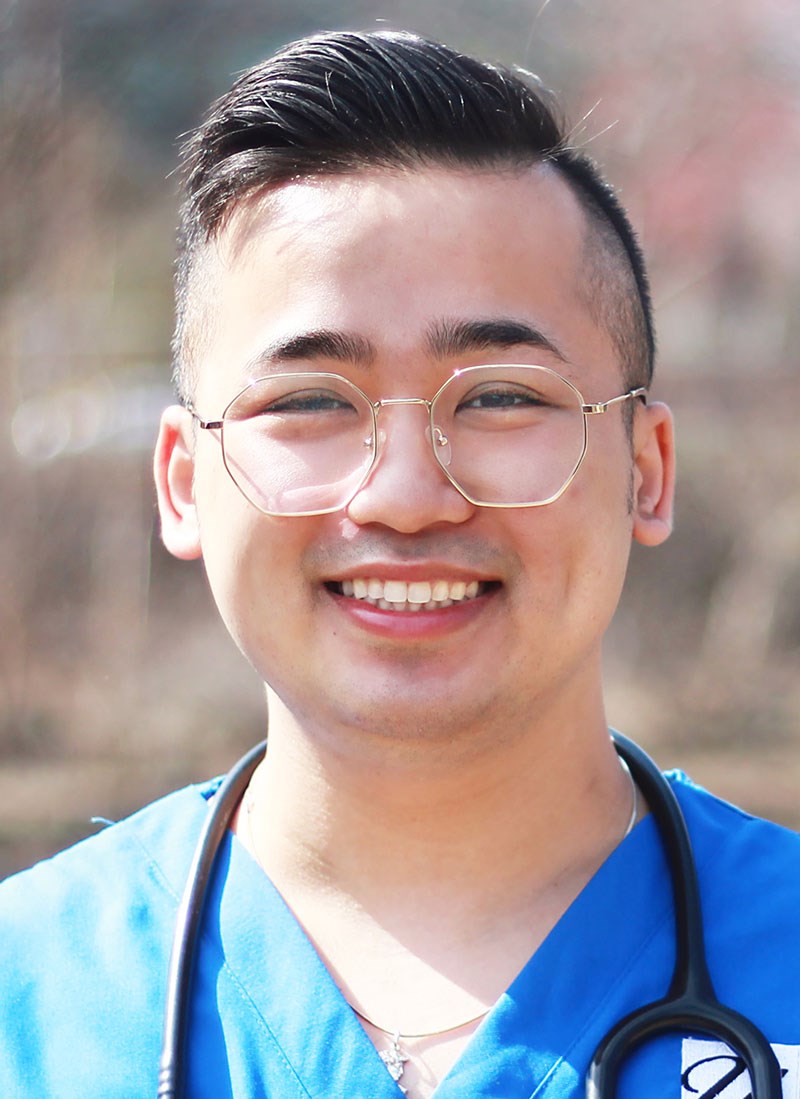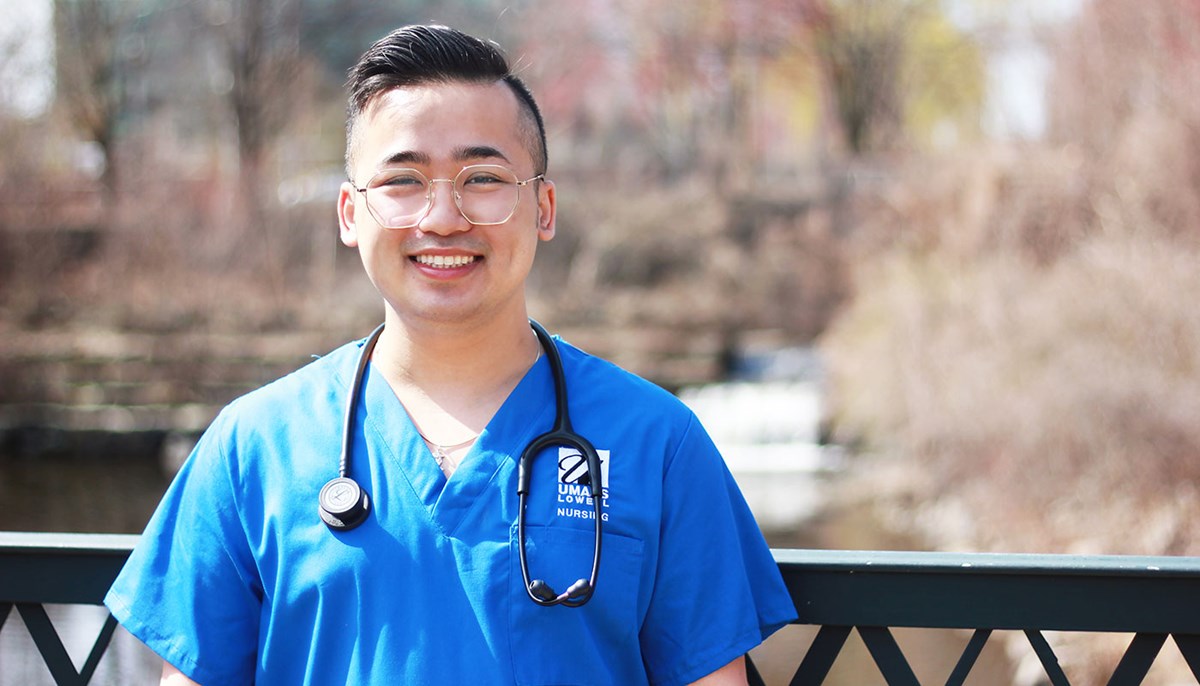Nursing student David Nguyen was already working as a nursing assistant at two Boston hospitals when the COVID-19 pandemic struck in March 2020.
Soon, the medical step-down unit at Boston Medical Center – which normally hosts patients recovering from major surgery, heart attacks, kidney failure, strokes and overdoses – filled with COVID-19 patients. And some of his patients on the cardiac intensive care unit at Boston Children’s Hospital were infected with the novel coronavirus, too, complicating their recovery.
Nguyen comforted many patients as they died, cut off from friends and family, during the first surge of COVID-19 in the spring and summer of 2020.
“At the height of the pandemic, it was very stressful. No one knew what was happening to anyone. They were just very isolated,” he says. “I held many patients’ hands and told them, ‘It’s going to be OK,’ even though it’s not going to be OK, but you’re helping them grieve that transition.”
He continued caring for COVID patients throughout his senior year. For his final nursing practicum in spring 2021, he was assigned to the ICU at Boston Medical Center – the same hospital where he works as a nursing assistant. As a nursing student in the ICU, he learned the skills of a registered nurse: caring for intubated patients, inserting IVs, administering medications, assessing the patient’s condition and keeping families updated.
He quickly learned to recognize the signs of impending death, when the patient’s vital signs worsen despite every intervention. He became adept at providing palliative care.
“It’s definitely distressing, but it’s also rewarding because you’re working with the patient’s family during this vulnerable time for them,” he says. “We print out the EKG strips, the patient’s last heart rate, and put them in a jar to give to the family.”
For his patient care, his work as a health sciences tutor and as a resident advisor in the Health Education Living-learning Community, his leadership as vice president of Men in Nursing, and his service as a student representative to the Solomont School of Nursing’s Baccalaureate Nursing Program Committee, Nguyen earned a 2021 Chancellor’s Medal for Student Service. He’s also finishing his undergraduate degree magna cum laude.
His success is all the sweeter because of his struggles.
Nguyen is a first-generation college student whose parents were among the thousands of South Vietnamese who fled their homeland after the end of the Vietnam War. They landed first in Hong Kong, then stayed at a refugee camp in the Philippines before finally being sponsored by a Christian mission group to come to the United States.
With little education and no knowledge of English, they struggled for years, but finally bought their own home in Everett, Massachusetts, and opened a nail salon in Plaistow, New Hampshire.
The salon’s lease ran out in 2016 just as Nguyen, the youngest of their four children, was graduating from Everett High School. With the family’s finances uncertain, Nguyen chose to come to UMass Lowell, even though his older siblings attended private colleges.
“I wanted to go to a public college that had a sense of Asian community so I could feel like I had a safe haven and I could be my true self,” he says.
Nguyen was determined to become a nurse. He had nearly died as a child, wasting away from a mysterious ailment. His parents took him to three other Boston hospitals before doctors at Boston Children’s Hospital finally figured out the problem and cured him.
Then, as a 10-year-old, Nguyen accompanied his grandmother to appointments at Massachusetts General Hospital after she was diagnosed with kidney cancer so that he could translate for her and cheer her up. The nurses treated both of them with patience and kindness.
“That really inspired me to be a nurse, because nurses spend more time with their patients and advocate for them,” he says. “Nurses take the time to build a therapeutic relationship with their patients.”
His first year at UMass Lowell went well, but he stumbled in his sophomore year health assessment class and was put on academic probation. He considered switching his major, but decided to stick with nursing, even though it added an extra year to his degree.
The setback inspired him to become a tutor and a resident advisor so he could support other students, and it informed his work on the Baccalaureate Nursing Program Committee, where he advocated for improvements to the program.
It also taught him to accept that sometimes failure is inevitable, and what’s important is to learn from the experience. That has proved important during the pandemic – and it will help him with the stress of being a critical care nurse after he graduates and passes his nursing exams, he says.
“Nursing is about saving lives, but at the height of the pandemic, there were too many deaths,” he says. “I learned that you can’t save everyone, but you can still honor their lives and care for their families.”


